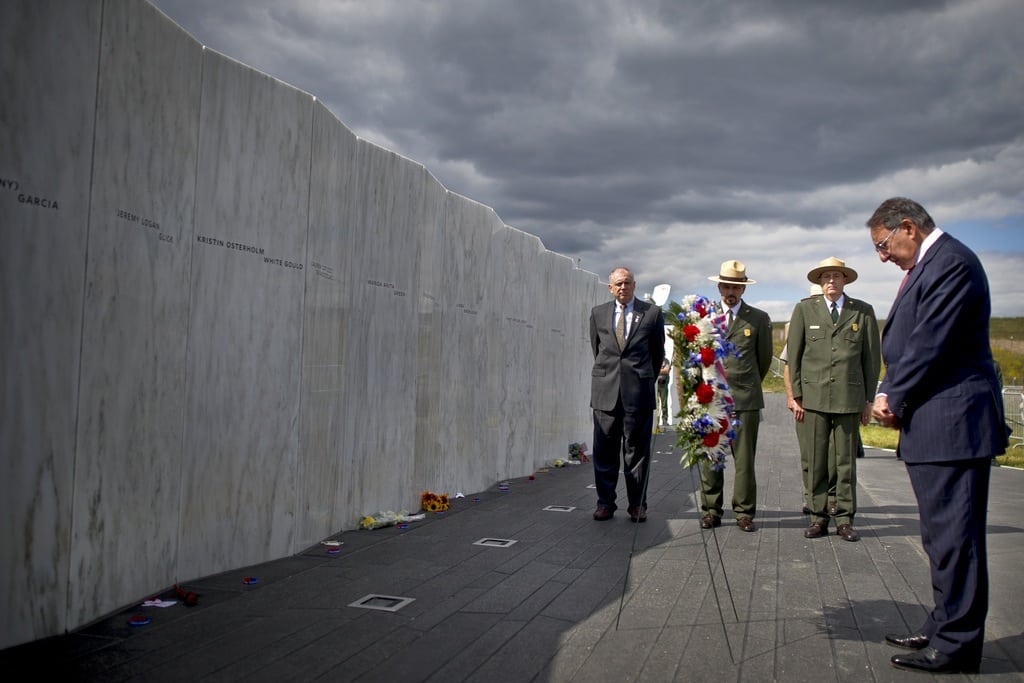Skift Take
United Flight 93's passengers got all of the media glory. The co-pilot's widow doesn't downplay their efforts, but gives the crew its due.
If you missed Melodie Homer’s recent talk at Wilmington, North Carolina’s Barnes & Noble, you missed a sizzler.
Homer is the widow of LeRoy W. Homer Jr., the first officer (co-pilot) for United Flight 93, the airliner that crashed near Shanksville, Pa., on Sept. 11, 2001, after being hijacked by al-Qaida terrorists. Other planes hit the World Trade Center towers and the Pentagon. The terror team on United 93 was apparently aiming for the U.S. Capitol but was thwarted by some action by the crew and passengers.
A decade later, this lady is still hurting — and she is not suffering in silence. In “From Where I Stand,” she speaks her mind and takes names.
Terrorists aside, Homer has bones to pick with a large number of people. She is no great fan of the Bush administration, which she thinks missed several warnings of a potential terror attack pre-9/11. She doesn’t like most of the media depictions and re-enactments of United 93’s last hours, although she is more forgiving toward Paul Greengrass’ 2006 film version.
And she takes exception to the behavior of several of the Flight 93 relatives, whom she thinks behaved like hot-dogs with the media. Lisa Beamer — whose husband, passenger Todd Beamer, issued the famous declaration “Let’s roll” in one of his last cellphone messages — comes in for particular scorn. Lots of passengers made last calls on their cells from the air, Homer notes. Many of them, however, chose not to publicize them.
Homer particularly objects to Flight 93 narratives which seem to depict the United crew as relatively passive and credit the passengers with most of the heroism. Knowing what she does of a Boeing 757’s layout, she challenges the version that has passengers crashing through the cockpit door using a beverage cart as a ram.
LeRoy Homer, she points out, was the only crewman on any of the hijacked jets to get off a “Mayday” (distress) message on the radio, which he was handling. Cockpit voice recorder messages indicate that Homer and pilot Jason Dahl were not killed immediately, as some narratives suggest. She theorizes that her husband, or Dahl, was able to sabotage the controls, so the hijackers were not able to handle the jet with ease.
From the moment on the morning of Sept. 11, when an airline receptionist told Homer, “I promise you, everything is OK,” United Airlines comes off badly in “From Where I Stand.” Homer and other widows had to struggle at length for survivors’ benefits, even as United’s CEO was departing with a “golden parachute.”
Homer herself would suffer for years with the physical and psychic symptoms of post-traumatic stress. She returned to work in the health-care industry, though, and worked hard to raise the couple’s young daughter, who was less than a year old when her father died. Since the Homers had planned to have more children, she even adopted a young boy as a single parent.
Behind her pained account stands the figure of LeRoy Homer: a former Air Force major, a veteran of Desert Storm who had dreamed of flying since he was a little boy. His widow describes a man who filled his time away from the cockpit with trips to museums and landmarks, and who loved to talk to his infant daughter in a high-pitched “Elmo” voice. If America needs another hero for Black History Month, LeRoy Homer fits the bill. ___
![]()
The Daily Newsletter
Our daily coverage of the global travel industry. Written by editors and analysts from across Skift’s brands.
Have a confidential tip for Skift? Get in touch
Tags: 9/11, safety, united airlines
Photo credit: Defense Secretary Leon Panetta lays a wreath at the Flight 93 Memorial Plaza Wall of Names in Shanksville, Pennsylvania., on September 10, 2011, the eve of the 11th anniversary. U.S. Navy / flickr.com
